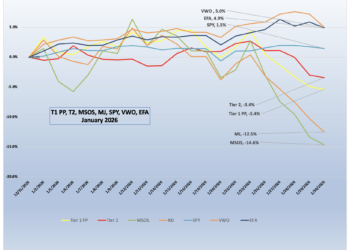The Massachusetts cannabis market is struggling under an avalanche of unpaid vendor debts, which could simply reflect the growing pains of a maturing market.
“I’ve seen an influx in the last year, especially from Massachusetts brands, coming to us,” said Cliff Sanders, director of operations for Cannabiz Collections, a collections agency dedicated to the cannabis industry. “But I have seen a lot of them shifting to a more aggressive strategy for collections.”
The state’s Cannabis Control Commission has also taken notice of an increasing number of producers and growers in Massachusetts struggling to get retailers to pay up, creating a potential debt crisis. Commissioner Kimberley Roy recently stated as much during the commission’s Feb. 8 meeting.
“Accounts receivable is presenting significant challenges in the Massachusetts cannabis industry, and other jurisdictions have taken steps to recognize and remedy this,” said Roy. “I look forward to continuing this conversation as we go into the community and meet with the stakeholders.”
Roy added that the CCC would be conversing with the state’s liquor control board to get an idea of how they handle issues of retailer debt.
“We’ve really started to roll up our sleeves to tackle this issue,” she said.
Rise in debt collections, restructurings
About a year and a half ago, Massachusetts saw the start of a wave of debt restructurings. Those financial maneuvers can be a challenge due to a history of federal bankruptcy court opposition to allowing access to cannabis companies.
The issue of debt and collections has become a larger topic of conversation in the legal cannabis industry, from MSO MedMen’s well-reported financial woes and the collapse of Herbl to an infamous social media video of the chief executive of a California dispensary chain bragging about stiffing vendors.
Bankruptcy courts are slowly becoming more willing to hear out cannabis companies, but until that becomes more standard, the number of restructurings and receiverships are increasing across the nation, according to Frank Segall, partner at Burns Levinson and the firm’s chair for its Cannabis Business & Law Advisory.
Sanders said he expects the market in the Bay State to see more growing pains.
“I think it is indicative of a maturing market,” said Sanders, who explained that collections can be a challenge for cannabis companies, in part, because of the relative youth of the industry. “Initially all companies are getting things off the ground, so it’s sales, sales, sales. I don’t think the majority of them have thought through what their strategy is going to be for collections.”
Sanders noted that it was common in newer markets for retailers to attempt to maximize their output in the hopes that returns on their investment will keep them afloat. While the financial struggles in Massachusetts are indicative of the market’s aging, Sanders argued that it is important to manage those growing pains so that they do not become more burdensome.
“We’re getting a lot more traffic from that area. I don’t think it’s a potential omen if it’s managed correctly,” said Sanders. “I was talking to a pretty good-sized brand the other day, and they were telling me they did a study and they feel like there’s about 2.5 times the number of licenses available in Massachusetts than there should be in what the market can support.”
Sanders noted that when cannabis markets open, there is often a flood of operators jumping in. As the market grows and corrects to ongoing demand, some producers and retailers begin to struggle with their bottom line. Massachusetts appears to be in a similar situation where prices have dropped, undercutting earlier cash flow expectations.
“It’s also a recipe for a lot of M&A activity,” said Sanders. “I think there’s gonna be a lot of failed businesses.”











